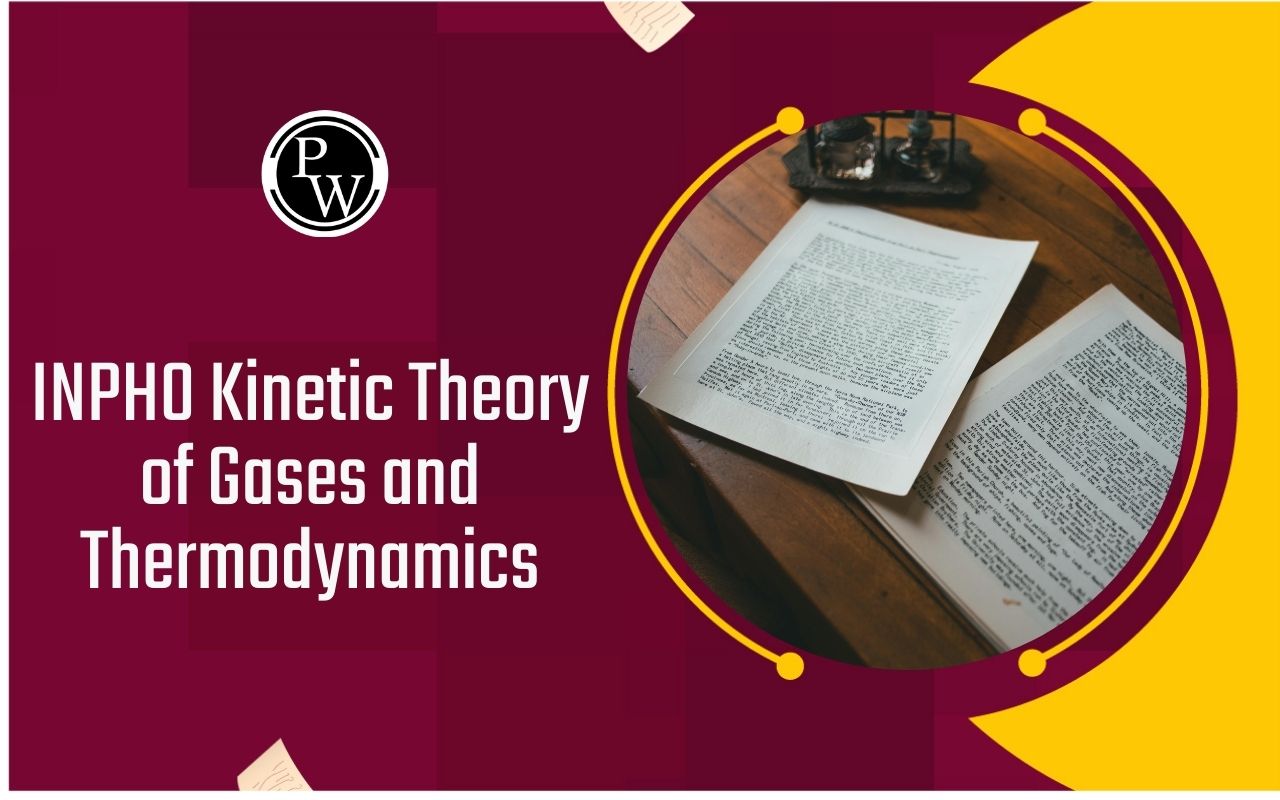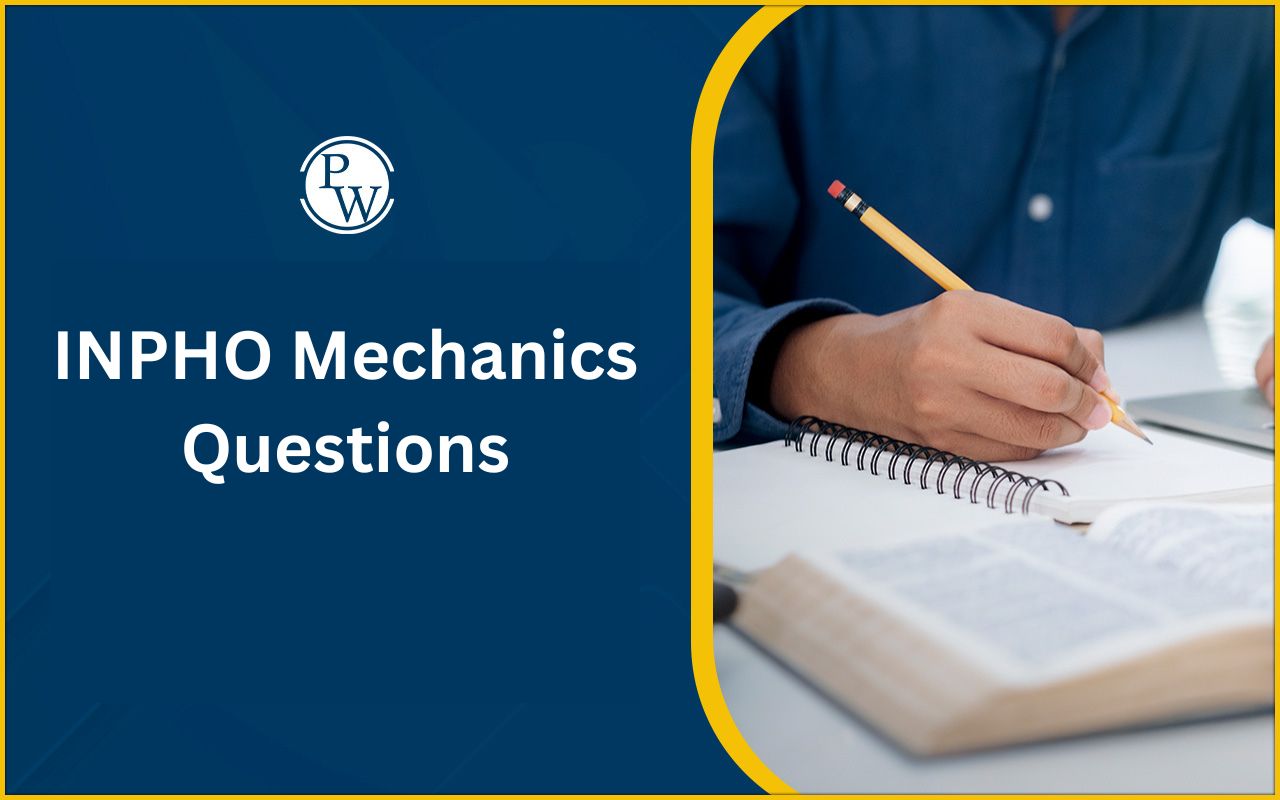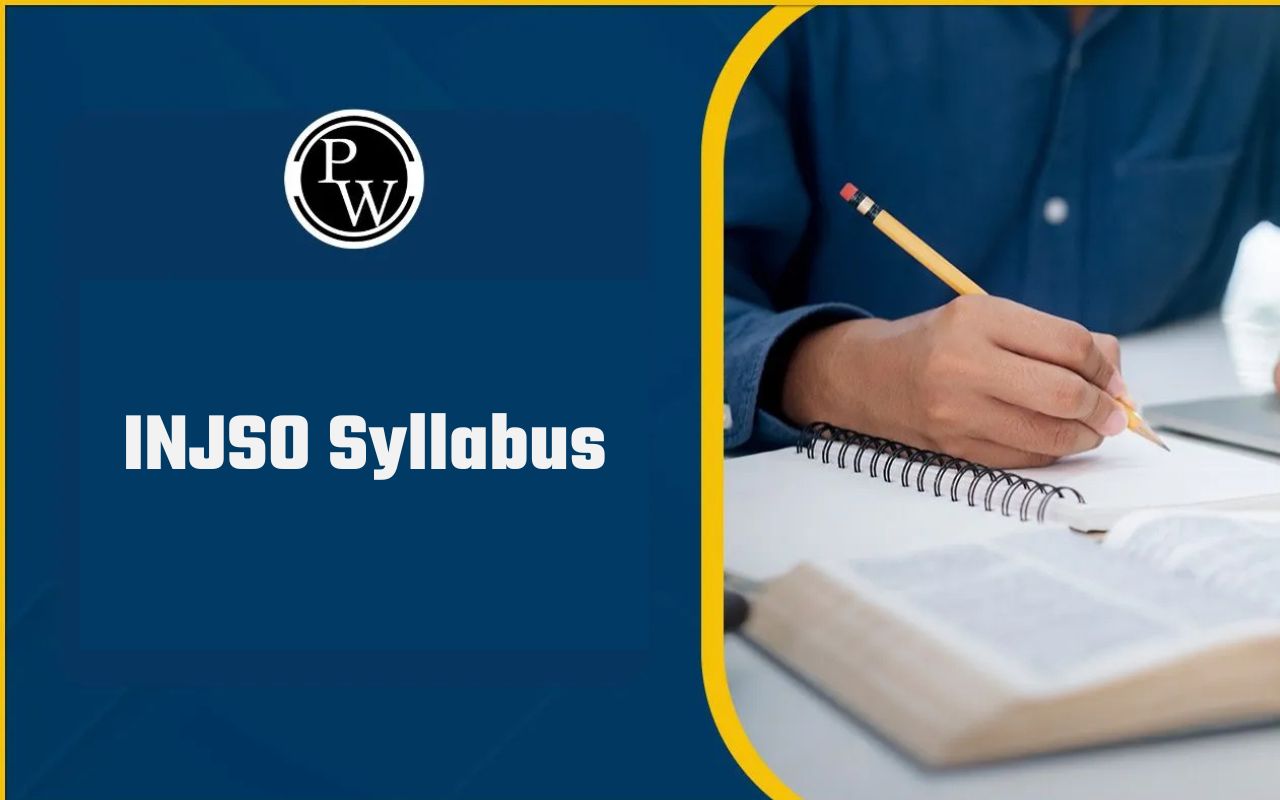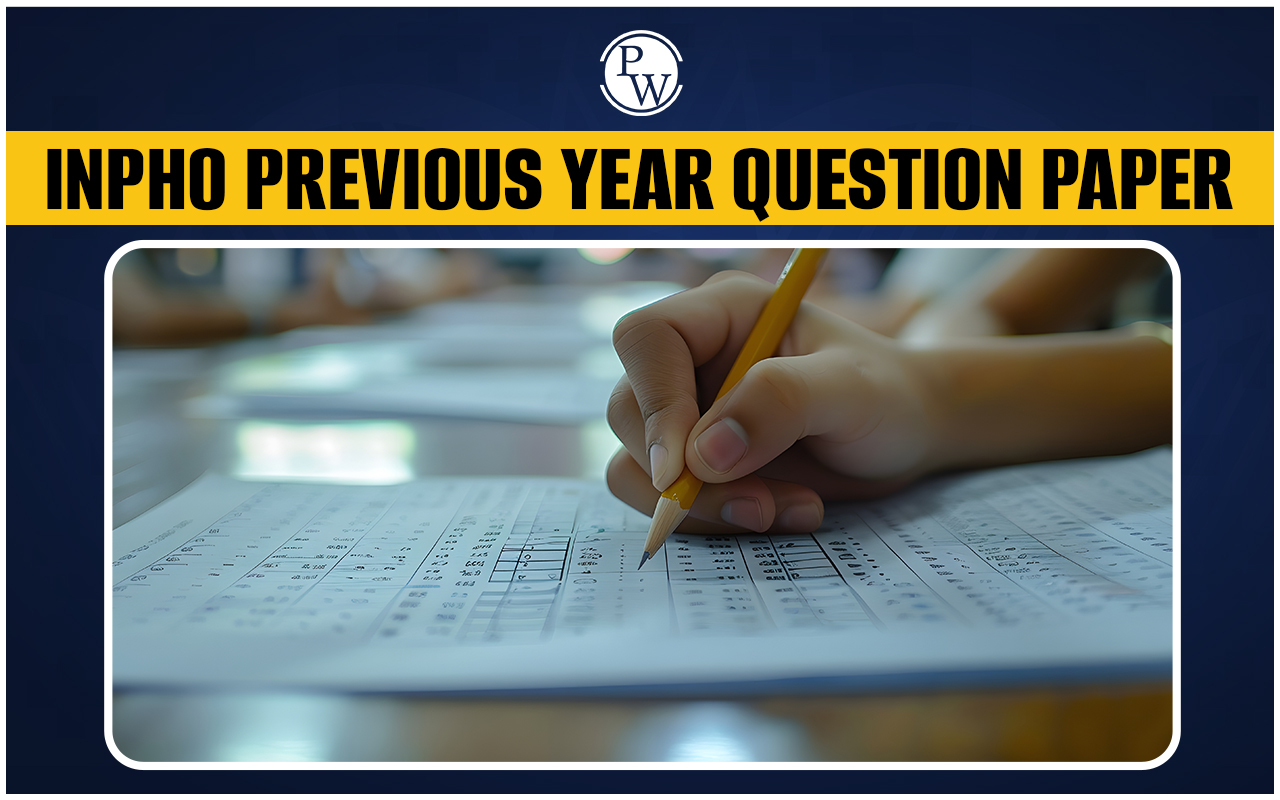
The National Standard Examination in Physics (NSEP) is conducted annually by the Indian Association of Physics Teachers (IAPT). NSEP is the first step for students aspiring to represent India in the International Physics Olympiad (IPhO).
The National Standard Examination in Physics (NSEP) holds significant importance in the academic and professional development of students interested in physics.
NSEP Olympiad identifies young talent by testing their conceptual understanding in Physics, analytical thinking, and problem-solving skills.
NSEP is open to students below from grade 9 to 12, allowing a wide range of participants from various backgrounds. The examination is conducted in English , Hindi and other languages, making it accessible to a larger number of students across India.
NSEP Exam Pattern 2025
The National Standard Examination in Physics Exam consists of multiple-choice questions. As per the NSEP Exam Pattern 2025 there are two part Part 1 and Part 2:
-
Total Questions- There will be a total of 60 questions in the test.
-
Total Marks- The question paper will be a total of 216 marks.
-
Type of Questions- There will only be multiple-choice or objective questions.
-
Duration- A total of 2 hours (120 Minutes) is allotted to complete the examination.
-
Question paper will be in English & Hindi
Part 1:
-
48 questions with one correct answer.
-
Each correct answer awards +3 marks.
-
Each incorrect there will be a deduction of 1 mark.
Part 2:
-
12 questions with multiple correct answers.
-
A score of +6 marks is awarded if all correct options are selected without marking any incorrect options.
-
No negative marking.
NSEP Eligibility Criteria 2025
Before applying for the olympiad examination, Students must ensure that they fulfill the NSEP eligibility criteria mentioned below:
-
Students must possess an Indian passport.
-
Applicants must be born between July 1, 2006 and June 30, 2011 , both days inclusive.
-
Applicant must be living and studying in India on or before 30/11/2022 OR Applicant must be studying in an Indian school system on or before 30/11/2022
-
Applicants must not have completed (or must complete) Class 12- board exam before 30/11/2025.
-
The applicant must not have started (or plan to start) studies at a university or similar educational institution before June 1, 2025.
-
Students must not appear in NSEJS 2025
NSEP Syllabus 2025
The NSEP (National Standard Examination in Physics) Syllabus for the academic year 2025-26 academic year is equivalent to CBSE Class 11 and 12 physics syllabus, as prescribed by the Indian Association of Physics Teachers (IAPT).
Each correct answer awards three marks, while incorrect answers incur a penalty of one mark. Here we have provided the topic-wise details of the NSEP syllabus.
-
Geometrical Optics
-
Alternating Current
-
Current Electricity
-
Electromagnetic Field
-
Thermodynamics
-
Modern Physics
-
Simple Harmonic Motion
-
Work. Power, Energy
-
Fluid Mechanics
-
Wave Optics
Books for NSEP Exam Preparation
For successful preparation for the National Standard Examination in Physics (NSEP), students must concentrate on a combination of NCERT textbooks and supplementary reference resources. Below is an organized list of suggested Books for NSEP Exam Preparation:
- NCERT Physics for Class 11 and 12: Essential for understanding the fundamental concepts and theories.
- Concepts of Physics (Volume 1 and 2) by H.C. Verma: Highly recommended for problem-solving and conceptual clarity.
- Fundamentals of Physics by Resnick and Halliday: A comprehensive resource that covers a wide range of topics in depth.
- Problems in General Physics by I.E. Irodov: Useful for advanced problem-solving practice.
- Understanding Physics Series by D.C. Pandey: Good for both theory and numerical problems.
- A Problem Book in Physics by A.A. Pinsky: Offers a collection of problems for practice.
- Classical Mechanics- David morin
- Electricity and magnetism:- Edward Purcell and David Morin / Griffith
- Optics and wave:- Eugene Hetch
- Thermodynamics:- Schroeder
NSEP Previous Year Question Papers
Time Management Tips for NSEP Preparation
Preparing for the National Standard Examination in Physics (NSEP) necessitates efficient time management to complete the syllabus on time, practice, and revision. Below are some specific suggestions to manage time to enhance your NSEP preparation:
-
Create a NSEP Study Plan
-
Create a timetable, divide specific time slots for each topic in the NSEP syllabus. Include time for theory, practising problems, and revision.
-
Prioritize Topics
-
Prioritize topics based on their weightage and proficiency of students. Focus first on high-priority areas and challenging sections.
-
Follow the ABC prioritization method:
-
A: High-priority topics (e.g., Mechanics, Electrodynamics).
-
B: Medium-priority topics.
-
C: Low-priority or already mastered topics.
-
Break Down Tasks
-
Divide large topics into smaller, manageable sections i.e. into subtopics (e.g., study subtopics like Work-Energy or Gauss's Law separately).
-
Use Effective Study Techniques
-
Study for 25 minutes, then take a 5-minute break. Repeat this cycle to maintain focus and avoid burnout.
-
Allocate fixed periods to complete specific tasks like solving NSEP past year papers.
-
Minimize Distractions
-
Minimize using social media and stop wasting time in leisure activities.
-
Create a quiet and peaceful study environment.
-
Regular Practice Mock Tests
-
Regular Practicing mock tests will provide a real time exam environment to improve speed and accuracy.
-
Fix time slot for solving NSEP previous years' question papers and numerical problems.
-
Stay Organized
-
Keep all study materials well-organized to save time searching for resources.
-
Use digital tools like task management apps or calendars to track progress.
-
Health
-
Maintain a healthy routine with adequate sleep (7–8 hours), regular exercise, and balanced meals to stay energized and focused.
-
Schedule short breaks to relax and recharge during long study sessions
Common Mistakes to Avoid During NSEP Preparation
By addressing these common mistakes to avoid, you can optimize your preparation for NSEP and improve your chances of success.
1. Absence of Conceptual Clarity
Concentrating exclusively on solving numerical problems without thoroughly comprehending the theoretical concepts may result in challenges when addressing Physics conceptual questions. Physics Olympiads i.e. NSEP stresses the importance of deep understanding, so make sure you understand the fundamentals before engaging in problem-solving.
2. Overlooking the NSEP Syllabus
Failing to closely examine the NSEP Syllabus may lead to expending effort on topics that are not relevant. The NSEP Exam Syllabus is closely linked with high school physics, so dedicate your focus to mastering these areas thoroughly.
3. Inadequate Time Management
Devoting excessive time to one subject or neglecting others can result in insufficient preparation. Develop a well-executed NSEP Study Plan that distributes time equally among all sections.
4. Skipping Practice/Mock Tests
Do not skip the Practice/mock tests until the conclusion of your preparation. Regular practice using past exam papers helps you become familiar with the exam pattern, enhances time management, and allows you to identify weak areas early on.
5. Neglecting Revision
Flooding yourself with new material without revisiting previously learned content might lead to retention gaps. Plan for regular revisions to recall concepts and formulas.
6. Excessive Confidence or Anxiety
Inflating your sense of preparedness or panicking when confronted with difficult problems can harm your performance. Remain calm, evaluate your strengths realistically, and approach questions strategically during both practice and exams.
7. Disregarding Health and Well-being
Extended study sessions without breaks may lead to burnout. Uphold a balanced routine that includes sufficient sleep, exercise, and relaxation to secure optimal focus and productivity.
How to Prepare for NSEP? FAQs
How to prepare for the NSEP exam?
What is the NSEP Exam?
Who is eligible for NSEP?
What subjects are included in NSEP Olympiad?
What are the common mistakes to be avoided while preparing for the NSEP Exam?










